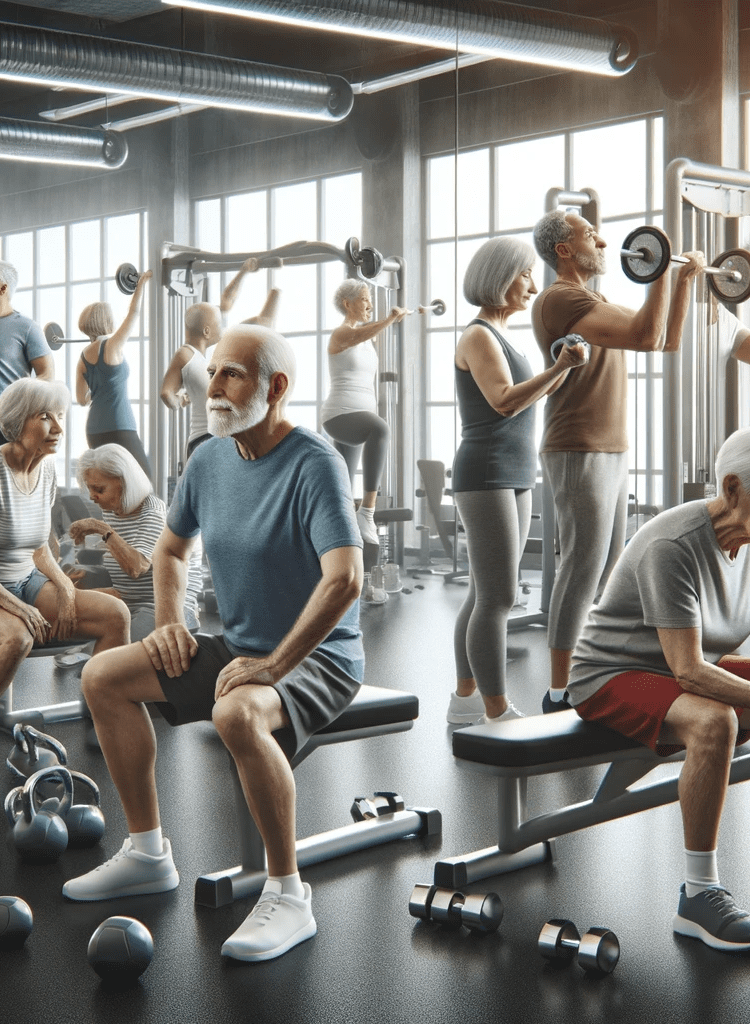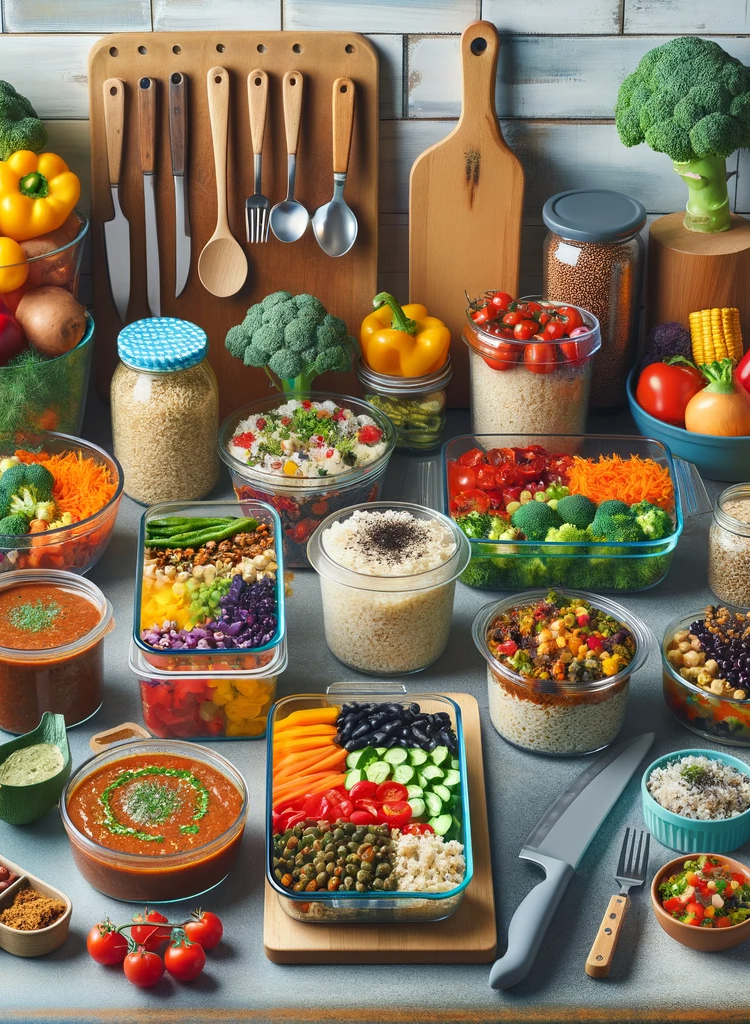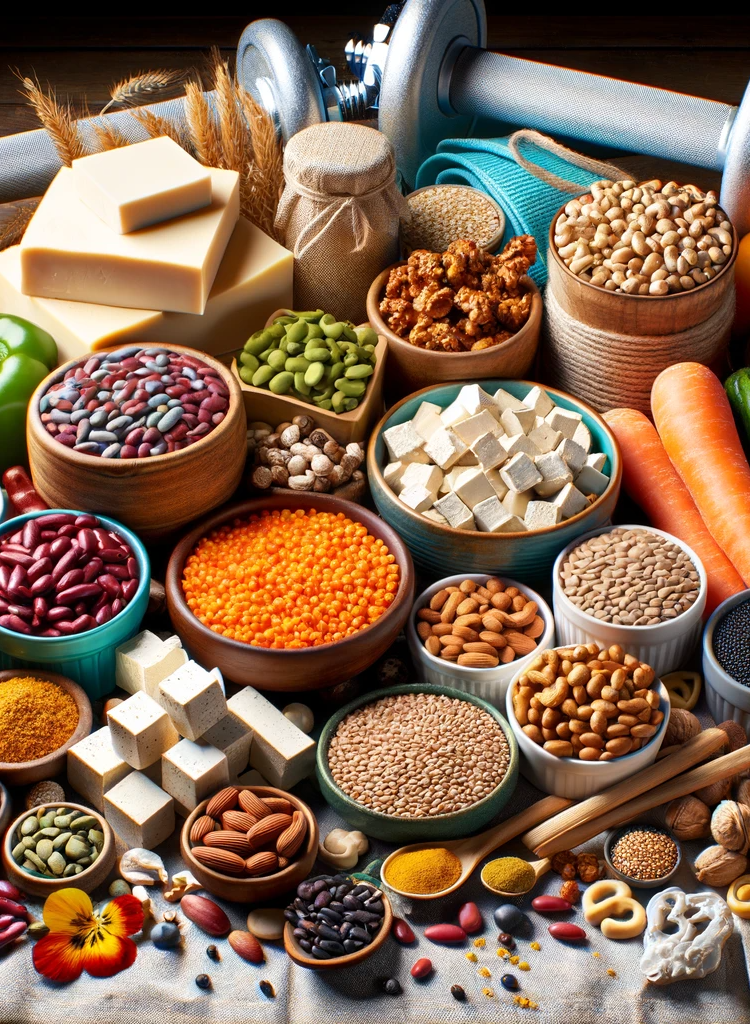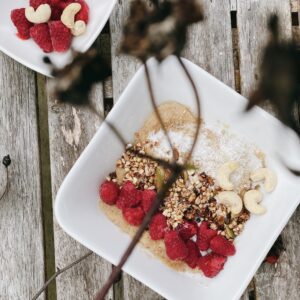Introduction
In recent years, veganism has gained momentum among athletes. This shift has brought to light the unique nutritional needs of this group, particularly in optimizing iron requirements.
Iron plays a pivotal role in several bodily functions, making it particularly vital for vegan athletes striving to excel in their sports endeavors.

Diving Deep into Iron Requirements for Vegan Athletes
The role of iron in athletic performance and overall health
Iron is a mineral that acts as a critical component of hemoglobin, the protein responsible for transporting oxygen in the blood. For athletes, sufficient oxygen supply to the muscles is crucial to support endurance and performance during training and competitions.
Iron also plays a key role in energy metabolism, aiding in the production of adenosine triphosphate (ATP), the body’s primary energy source. Moreover, iron is essential for immune function, cognitive health, and overall well-being.
How iron needs may differ for vegan athletes compared to non-vegans
The difference in iron needs for vegan athletes as compared to non-vegans is highlighted by several studies and reputable sources. The main concern stems from the type of iron available in plant-based diets versus omnivorous diets.
Vegan diets primarily provide non-heme iron, which has a lower bioavailability compared to the heme iron found in animal products. This distinction is crucial as heme iron is more readily absorbed by the body, making it a more efficient source of iron.
A study comparing micronutrient status among omnivorous, lacto-ovo-vegetarian, and vegan recreational runners identified iron as one of the micronutrients assessed, underlining the importance of monitoring iron levels in individuals adhering to plant-based diets.
The table below illustrates the different iron requirements for vegan athletes compared to their non-vegan counterparts:
| Population Group | Recommended Iron Intake (mg/day) |
|---|---|
| Non-Vegan Athletes | 8.7 (Males), 14.8 (Females) |
| Vegan Athletes | 14.0 (Males), 19.6 (Females) |
The significance of iron for muscle function and oxygen transport
For athletes, especially those participating in endurance sports, proper muscle function and oxygen transport are vital for peak performance, making understanding the iron requirements crucial.
The key role of iron-rich hemoglobin is to transport oxygen from the lungs to the muscles in action, ensuring they are sufficiently fueled during intense physical activities.
Adequate iron levels are crucial for reducing fatigue, enhancing recovery, and optimizing training outcomes for vegan athletes.
The discussion surrounding iron requirements for vegan athletes as compared to their non-vegan counterparts is backed by numerous studies, including a study accessible on ScienceDirect.
Through a comprehensive understanding and management of iron intake, vegan athletes can significantly enhance their endurance and overall performance, showcasing the critical interlink between iron, muscle function, and oxygen transport.
Vegan Iron Sources and Meeting Iron Requirements
Iron Content in Various Plant-Based Foods
When it comes to meeting iron requirements, vegan athletes have a wide array of plant-based options. Here are some:
| FOOD | SERVING SIZE | IRON CONTENT (PER SERVING) |
|---|---|---|
| Lentils | 1 cup cooked | 6.6 mg |
| Spinach | 1 cup cooked | 6.4 mg |
| Tofu | 3.5 oz (100g) | 6.4 mg |
| Pumpkin Seeds | 1 oz (28g) | 4.2 mg |
| Quinoa | 1 cup cooked | 2.8 mg |
| Chickpeas | 1 cup cooked | 4.7 mg |
| Black Beans | 1 cup cooked | 3.6 mg |
| Swiss Chard | 1 cup cooked | 4.0 mg |
| Tempeh | 3.5 oz (100g) | 2.2 mg |
| Pistachios | 1 oz (28g) | 1.2 mg |
| Sunflower Seeds | 1 oz (28g) | 1.4 mg |
| Fortified Cereals | Varies, check label | Variable |
| Amaranth | 1 cup cooked | 5.2 mg |
| Raisins | 1 small box (about 1.5 oz or 42g) | 0.8 mg |
| Blackstrap Molasses | 1 tablespoon | 7.0 mg |
| Kale | 1 cup cooked | 1.1 mg |
| Oats | 1 cup cooked | 3.4 mg |
| Edamame | 1 cup cooked | 2.1 mg |
| Broccoli | 1 cup cooked | 1.1 mg |
| Almonds | 1 oz (28g) | 1.0 mg |
| Cashews | 1 oz (28g) | 2.2 mg |
| Hemp Seeds | 3 tbsp | 2.9 mg |
| Dried Apricots | 1/2 cup (about 2.5 oz or 71g) | 1.4 mg |
| Peanut Butter | 2 tbsp | 0.6 mg |
| Chia Seeds | 2 tbsp | 2.2 mg |
| White Beans | 1 cup | 7.83 mg |
| Kidney Beans | 1 cup | 5.2 mg |
| Green Peas | 1 cup | 2.46 mg |
| Sesame Seeds | 1 cup | 21 mg |
| Pecans | 1 cup | 2.76 mg |
| Walnuts | 1 cup | 2.91 mg |
| Romaine Lettuce | 1 cup | 0.46 mg |
| Tomato Paste | 1 cup | 7.81 mg |
| Sweet Potato, cooked | 1 cup | 1.38 mg |
| Mushrooms, white, raw | 1 cup | 0.48 mg |
| Palm Hearts, canned | 1 cup | 4.57 mg |
| Soy Protein Isolate | 1 oz powder | 3 mg |
| Prunes (dried plums) | 1 cup | 1.62 mg |
| Spelt, cooked | 1 cup | 3.14 mg |
| Corn, cooked | 1 cup | 0.67 mg |
| Brown Rice, cooked | 1 cup | 1.13 mg |
| Coconut Milk (cooking) | 1 cup | 7.46 mg |
| Dark Chocolate Chips | 1 cup chips | 5.26 mg |
| Molasses | 1 cup | 15.9 mg |
| Dried Thyme | 1 tsp leaves | 1.25 mg |

The importance of variety in obtaining iron from different sources
It’s crucial to incorporate these iron-rich foods into your vegan diet. Additionally, combining them with amino acids can offer more holistic nutrition. For example, quinoa, apart from being a good source of iron, is also a complete protein, providing all essential amino acids.
Diversify your iron-rich foods to keep your meals interesting and nutritious. Mixing these sources ensures a wide range of nutrients and flavors.
Vegan Iron Supplements
While a well-balanced vegan diet can meet most iron needs, some athletes may benefit from iron supplementation, especially if they have higher iron requirements or face challenges with absorption. Factors such as intense training, menstrual cycle, or medical conditions can influence iron needs.
Types of iron supplements available for vegans
Vegans have a variety of iron supplements to choose from, designed specifically to suit their dietary preferences. Common types include:
| Supplement Name | Dosage Recommendation |
|---|---|
| Plant-Based Iron Capsules | 18 mg per day |
| Liquid Iron Supplement | Follow manufacturer’s guidelines |
| Iron Complex with Vitamin C | As directed by a healthcare professional |
The importance of consulting a healthcare professional before starting supplementation
Before incorporating iron supplements, it’s essential to consult with a healthcare professional or a registered dietitian. They can assess your iron status, identify potential deficiencies, and provide personalized guidance on the right supplement type and dosage for your specific needs.
Maximizing Iron Absorption in a Vegan Diet: Techniques and Tips
How to enhance iron absorption by combining foods rich in vitamin C
Vitamin C plays a pivotal role in boosting the absorption of non-heme iron, the type of iron found in plant-based sources and supplements. It achieves this by reducing ferric iron (Fe^3+) to ferrous iron (Fe^2+), a form that is more easily absorbed in the gut.
Furthermore, vitamin C can form a chelate with non-heme iron, enhancing its solubility and uptake. A synergistic approach of consuming vitamin C-rich foods or supplements alongside iron supplements or iron-rich meals can significantly amplify iron absorption.
For example, pairing a vitamin C-rich fruit like an orange or a bell pepper with an iron supplement or a meal rich in plant-based iron can be an effective strategy to maximize iron intake.
Foods and substances that may hinder iron absorption and how to avoid them
While some foods can boost iron absorption, others can hinder it. Be cautious about consuming iron-rich meals alongside coffee or tea, as these beverages contain compounds that can reduce iron absorption.
When you consume coffee or tea with iron-rich foods, the polyphenols bind with the iron and form a complex that is much harder for your body to absorb. This interaction can lead to decreased iron absorption by up to 50-90% according to some studies.
Alternative Beverages to Coffee and Tea
If you’re looking to maximize iron absorption, consider substituting coffee or tea with beverages that either do not hinder iron absorption or, better yet, promote it:
- Herbal Teas: Unlike black or green tea, many herbal teas do not contain polyphenols and are safe to consume with iron-rich meals.
- Citrus Juice: Citrus juices are rich in vitamin C, which as mentioned, enhances iron absorption. A glass of orange juice with your meal can be a good choice.
- Water: Sometimes, simplicity is key. Water is a neutral choice that won’t interfere with iron absorption and keeps you hydrated.
By understanding the interaction between iron and other substances, and making informed choices about what to consume alongside iron-rich foods, you can significantly optimize your body’s ability to absorb this vital mineral.
Preventing Iron Deficiency: Strategies for Vegan Athletes
By adopting a proactive approach, you can ensure your iron levels remain within a healthy range, supporting your athletic performance and overall health. Here are some strategic steps and tips to consider:
- Diversify Your Food Choices: Embrace a wide variety of iron-rich plant-based foods such as legumes, leafy greens, fortified cereals, and seeds. Incorporate foods high in vitamin C in your meals to enhance iron absorption.
- Combine Iron Sources: Craft meals that include multiple sources of iron. For instance, a salad with lentils, quinoa, and spinach can be a powerhouse of iron. Experiment with diverse cuisines that are rich in plant-based iron sources.
- Vitamin C Synergy: Pair iron-rich foods with vitamin C sources like citrus fruits, bell peppers, and strawberries. Consider a glass of citrus juice with your iron-rich meals to boost iron absorption.
- Consultation and Supplementation: If you are struggling to meet your iron needs through diet alone, consult with a healthcare professional about the possibility of iron supplementation. Follow the recommended dosage and guidelines provided by your healthcare professional for any iron supplement you take.
- Mindful Meal Planning: Plan your meals to include a balance of iron-rich foods, vitamin C sources, and other essential nutrients. Use meal tracking apps to monitor your iron intake and ensure you are meeting your daily requirements.
- Explore Cooking Techniques: Employ cooking techniques like soaking, sprouting, and fermenting to improve iron absorption from plant-based foods. Experiment with different cooking methods to discover what works best for you.
By adhering to these strategies, vegan athletes can significantly reduce the risk of iron deficiency, ensuring they remain energetic and performance-ready.
Maximizing Iron Absorption in a Vegan Diet: Techniques and Tips
Maximizing iron absorption often starts in the kitchen. Here are some cooking techniques along with examples and recipes to help you make the most out of your plant-based iron sources:
1. Soaking and Sprouting:
- Technique: Soaking grains and legumes overnight, and allowing them to sprout, can reduce phytate content which inhibits iron absorption.
- Example: Sprouted Lentil Salad
- Soak 1 cup of lentils in water overnight.
- Drain and rinse the lentils, then let them sprout for 1-2 days, rinsing them a few times per day.
- Once sprouted, mix with diced vegetables of your choice, a handful of fresh parsley, and dress with lemon juice and olive oil.
2. Fermentation:
- Technique: Fermenting foods can enhance the bioavailability of iron.
- Example: Homemade Tempeh
- Start with 2 cups of dry soybeans. Soak them overnight, then cook according to package instructions.
- Cool the beans and mix with 1 teaspoon of tempeh starter (easily found online or in health food stores).
- Place the mixture in a clean, perforated plastic bag, and let it ferment at room temperature for 24-48 hours.
3. Cooking with Cast Iron:
- Technique: Cooking acidic foods like tomato sauce in cast iron cookware can increase the iron content of the food.
- Example: Cast Iron Skillet Tomato Sauce
- In a cast iron skillet, sauté 1 diced onion and 3 minced garlic cloves in olive oil until soft.
- Add 2 cans of crushed tomatoes, salt, pepper, and herbs of your choice (basil, oregano, etc.).
- Simmer for at least 30 minutes, stirring occasionally.
4. Combining Iron-rich Foods with Vitamin C:
- Technique: Vitamin C enhances non-heme iron absorption when consumed together.
- Example: Spinach and Strawberry Salad
- Toss fresh spinach leaves with halved strawberries, toasted almond slices, and a vinaigrette made with olive oil and balsamic vinegar.
These techniques, accompanied by recipes, offer a practical approach towards enhancing iron absorption from plant-based foods, allowing vegan athletes to better meet their iron needs.
Tips for Vegan Athletes: Iron and Beyond
General nutrition tips for vegan athletes to support their overall health and athletic performance
- Balanced Macronutrients: Ensure a balance of carbohydrates, proteins, and healthy fats to fuel your workouts and aid in recovery.
- Adequate Protein Intake: Incorporate a variety of plant-based protein sources to meet your protein needs for muscle repair and growth.
- Hydration: Stay hydrated before, during, and after exercise to maintain optimal performance and support overall health.
- Nutrient Timing: Plan your meals around training sessions to maximize energy and nutrient availability during workouts.
- Omega-3 Fatty Acids: Include sources of omega-3s like chia seeds, flaxseeds, and walnuts for their anti-inflammatory benefits.
- Calcium-Rich Foods: Ensure sufficient intake of calcium-rich foods like fortified plant-based milk and leafy greens to support bone health.
- Vitamin B12 Supplement: As a vegan, consider a vitamin B12 supplement to meet your daily needs.
Addressing common misconceptions about iron in a vegan diet
- Myth: Plant-Based Iron Is Inferior: While non-heme iron from plant-based sources may be less readily absorbed than heme iron, a well-balanced vegan diet can provide sufficient iron when planned carefully.
- Myth: Vegans Are Prone to Iron Deficiency: With proper planning and a varied diet, vegan athletes can meet their iron needs and maintain optimal iron levels.
Exploring the relationship between iron intake and menstrual health in female vegan athletes
Female athletes, especially those with heavy menstrual cycles, may have increased iron requirements. It’s crucial for vegan female athletes to pay extra attention to iron intake during menstruation and consider supplementation if needed.
Conclusion
Iron is a fundamental mineral for athletes, playing a vital role in oxygen transport, energy production, and overall health. For athletes following a vegan diet, meeting iron needs is both achievable and essential.
For more insights into vegan nutrition, explore articles on vegan sources of leucine, debunking BCAAs myths, and the best plant-based proteins.
FAQs
What are the best plant-based sources of iron for vegans? Some of the best plant-based sources of iron include: Legumes: Lentils, chickpeas, and black beans. Leafy Greens: Spinach, kale, and swiss chard. Nuts and Seeds: Pumpkin seeds, sesame seeds, and sunflower seeds. Whole Grains: Quinoa and fortified cereals. Other Sources: Tofu, tempeh, and fortified plant-based milks.
How does non-heme iron differ from heme iron in absorption? Heme iron, found in animal products, is typically absorbed more efficiently by the body compared to non-heme iron from plant-based sources. The absorption rate of heme iron ranges from 15% to 35%, while non-heme iron’s absorption rate is around 2% to 20%. Vitamin C can significantly enhance the absorption of non-heme iron.
What challenges do vegan athletes face regarding iron intake? Vegan athletes face a few challenges regarding iron intake: Lower Bioavailability: The bioavailability of non-heme iron from plant-based sources is lower compared to heme iron from animal sources. High Phytate Content: Plant-based foods often have high phytate content, which can inhibit iron absorption. Higher Iron Needs: Athletes, in general, have higher iron needs due to increased red blood cell production, and losses through sweat and urine.
Are there vegan iron supplements available for athletes? Yes, common forms include plant-based iron capsules, liquid iron supplements, and iron complexes with vitamin C. It’s advisable to consult with a healthcare professional before incorporating iron supplements into your regimen.
How can I enhance iron absorption on a vegan diet? To enhance iron absorption on a vegan diet: Consume Vitamin C-rich foods with iron-rich meals to increase iron absorption. Avoid consuming coffee or tea alongside iron-rich meals as they can inhibit iron absorption. Utilize cooking techniques such as soaking, sprouting, and fermenting to reduce phytate content in plant-based foods. Consider using cast iron cookware, especially when cooking acidic foods.



